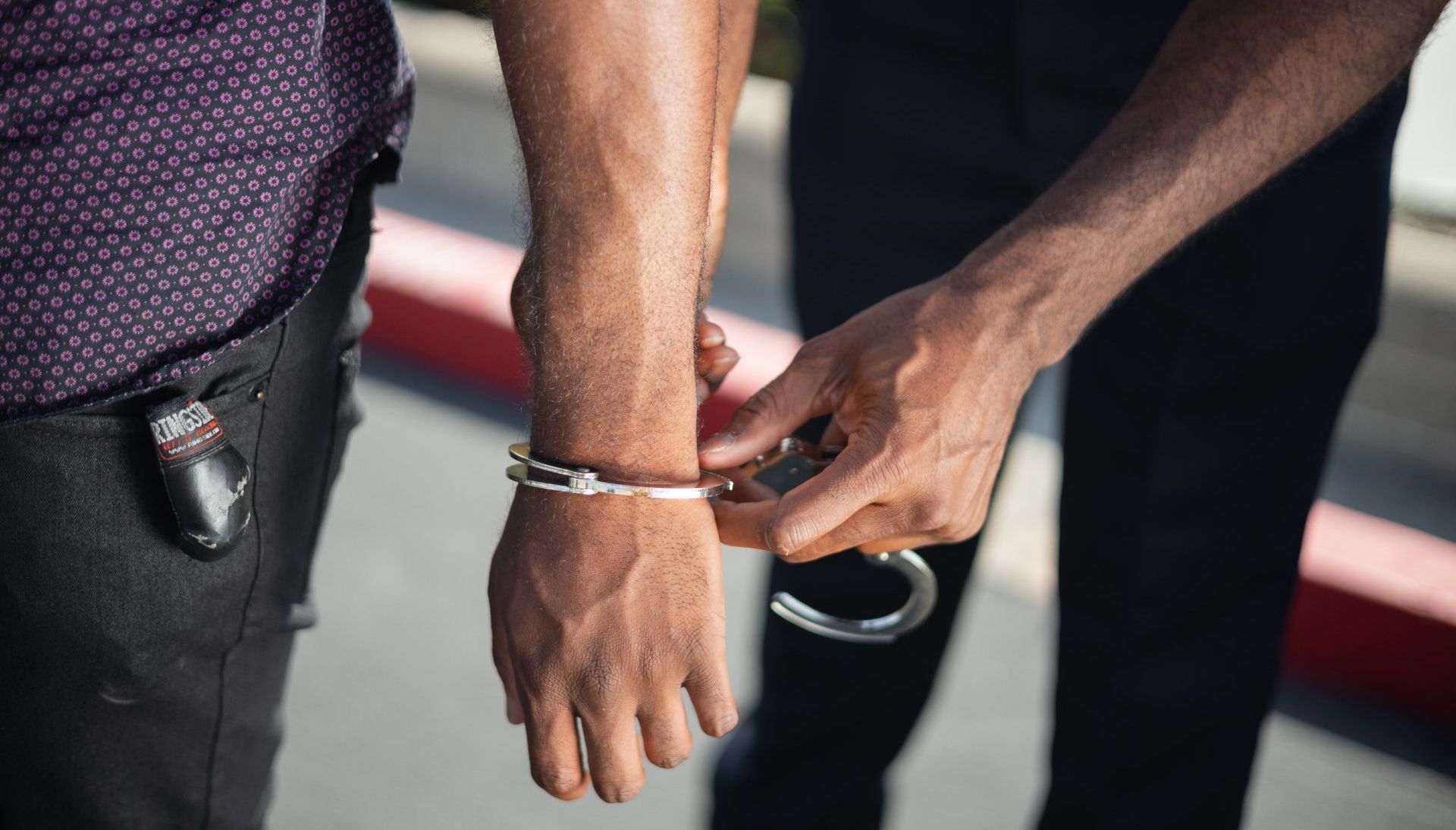New Florida Bill – FL 1718
Denice Flores • August 24, 2023
Governor Ron DeSantis from the State of Florida signed a new bill into law which will take effect July 1, 2023.
FL 1718 is a law
that will affect all Florida residents, not just undocumented immigrants. The new law will restrict the ability of undocumented individuals to live and work in the state of Florida.
In short, FL 1718 will:
- Criminalize the act of transporting an undocumented individual into Florida.
- Require hospitals to collect immigration status information from patients.
- Require Florida employers to document employment verification procedures for state law purposes, mandates E-Verify participation for most Florida employers and creates separate penalties for violations.
- Restrict access to Florida driver’s and professional licenses.
- Empower the state of Florida to participate in the enforcement of federal immigration laws.
FL 1718 will make it a felony crime for a person to knowingly and willfully transport another person, including a minor, who entered the United States in violation of the law and who was not inspected by immigration authorities since entering the U.S., into the state of Florida. FL 1718 will not criminalize living with, sheltering, renting, or transporting undocumented persons within the state of Florida.
FL 1718 will require hospitals that accept Medicaid to ask on patient admission forms, the legal status of the patient. This means that the form will ask whether the patient is a U.S. citizen, lawful permanent resident, or undocumented. The forms must include an option where the patient can choose to decline to answer.
FL 1718 will make it a state crime to knowingly employ, hire, recruit, or refer, either for themselves or on behalf of another, for private or public employment a foreign national who is not authorized to work in the U.S. An employer will also be prohibited from employing an undocumented worker after obtaining knowledge that an individual is or has become undocumented. Violations can result in revocation of an employer’s state business license and fines.
The bill will also provide criminal penalties for an undocumented and unauthorized individual who uses false identification documents or who uses another person’s identification documents to work.
Employers with 25 or more employees will be required to use E-Verify for all new employees and employers must retain a copy of documentation provided for E-Verify. Employers will be required to verify each new employee’s employment eligibility within 3 business days after the first workday of the new employee. Employers will also be required to keep verification from E-Verify for the last 3 years for employees.
To enforce the new E-Verify requirements, starting July 1, 2024, state law enforcement will be authorized to perform random audits of businesses and can request copies of documentation from the employer to verify employees’ employment. Penalties may be imposed for non-compliance.
FL 1718 will prohibit counties and municipalities from funding the issuance of identification documents to a person who does not provide proof of lawful presence in the U.S. Note, documents may be issued but not government funding will not be permitted.
Driver’s licenses issued by other states to individuals who cannot provide proof of lawful presence will not be valid in the state of Florida. State law enforcement must cite any person driving with such a license.
Other impacts that this new law will have are that effective November 1, 2028, there will be restrictions for DACA recipients and other undocumented individuals to be admitted to the Florida Bar; state law enforcement who have “custody of a person because of the “issuance of an immigration detainer by a federal immigration agency”‘ will be required to take DNA samples from the person; the law will prohibit a state or local governmental entity, or law enforcement agency from restricting a law enforcement agency from sending employment eligibility information to a federal immigration agency.
It is important to be informed about this new law that takes effect July 1, 2023. If you believe you may be affected by this law you should speak to an attorney.
This blog is not intended to be legal advice and nothing here should be construed as establishing an attorney client relationship. Please schedule a consultation with an immigration attorney before acting on any information read here.

On March 31, 2024, U.S. Citizenship and Immigration Services (USCIS) implemented a policy update that limits gender marker selections on all immigration forms and systems to two biological sexes: male and female. This change eliminates the option for applicants to select a non-binary or “X” gender marker—an option that had previously been permitted on some forms. While USCIS emphasizes that this update does not change who qualifies for immigration benefits, it may significantly impact how certain applications—particularly asylum claims based on gender identity-related persecution—are understood and evaluated. What Has Changed? Under the revised policy, applicants may now only choose “Male” or “Female” when completing USCIS forms. The ability to select a non-binary or third-gender option is no longer available. Applicants may still request to change their gender marker with USCIS, but only within the male/female binary. Supporting documentation, such as medical or legal records, is not required to make the change. This means that transgender individuals can still align their gender marker with their identity—if it falls within the two binary categories—but non-binary individuals are no longer represented. The change follows guidance issued by the federal Office of Management and Budget (OMB), which called for greater consistency in the collection of sex and gender data across federal agencies. Impact on Asylum Applicants This policy update is especially important for individuals applying for asylum based on persecution related to their gender identity. Under U.S. immigration law, asylum is available to people who have suffered persecution—or fear future persecution—based on their membership in a “particular social group.” This includes people targeted for being transgender, gender non-conforming, or otherwise not aligning with socially expected gender roles in their home country. Although the legal standard for asylum remains unchanged, the removal of the non-binary gender marker could make it harder for some applicants to clearly present and document their identity. In asylum cases, credibility and clarity are crucial. The ability to accurately reflect one’s gender identity on official forms can play an important role in establishing the foundation of a persecution claim. Now, applicants who identify as non-binary or outside the traditional male/female categories may be forced to select a gender that does not align with their lived experience. This could lead to confusion in their case file or require additional explanation during interviews or hearings. This policy could weaken the strength of some asylum claims—not because the underlying facts have changed, but because the official forms now fail to reflect the applicant’s true identity. For example: A non-binary person applying for asylum after being targeted in their home country may now have to select “Male” or “Female” on their asylum application, despite not identifying as either. This mismatch may lead adjudicators to question the applicant’s identity, possibly weakening the strength of the claim or requiring added clarification and documentation. In defensive asylum cases—where applicants are in removal proceedings—such inconsistencies could create unnecessary hurdles and complicate the evidentiary presentation. What Can Applicants Do? Despite the change, individuals can still pursue asylum based on gender identity. The underlying eligibility criteria remain the same. However, applicants should be prepared to clearly explain any differences between their stated identity and the gender marker required on USCIS forms. Applicants are encouraged to: Include a personal declaration explaining their gender identity in detail and how it relates to their fear of persecution. Provide evidence such as affidavits, country condition reports, or expert testimony that supports the claim. Work with an experienced immigration attorney who can help present the claim effectively and prepare for any questions that might arise from the new form limitations. The new USCIS policy on gender markers may seem like a technical update, but for asylum seekers fleeing gender-based persecution, it has real implications. While individuals are still legally eligible to seek protection, the limitation to binary gender options could make it more difficult to fully and clearly present their case. If you or someone you know is facing immigration challenges related to gender identity—or is concerned about how this policy may impact an asylum claim—please contact Santos Lloyd Law Firm to schedule a consultation with one of our experienced immigration attorneys. We’re here to help ensure your voice is heard and your case is handled with the care and expertise it deserves.

In 2025, the immigration landscape continues to shift under the weight of national security concerns, ushered in by Executive Order “ Protecting the United States From Foreign Terrorists and Other National Security and Public Safety Threats. ” This directive tasks federal agencies—including the U.S. Department of State—with implementing enhanced screening and vetting protocols for all foreign nationals seeking visas or other immigration benefits. The result? A dramatically intensified vetting process, along with mounting concerns from immigrants, attorneys, and civil liberties advocates alike. Traditionally, airport security focused on verifying travel documents and screening for prohibited items, while consular officers assessed the legitimacy of visa petitions and the admissibility of applicants. Extreme vetting, however, represents a significant shift toward a far more invasive and comprehensive investigative process. It now includes detailed background checks, biometric verification, digital forensics, and expansive scrutiny of an applicant’s online presence and criminal or financial records. Since President Trump’s second term began in January 2025, the implementation of extreme vetting has expanded rapidly. Today, border screenings go far beyond routine document checks, encompassing a full-scale evaluation of a traveler’s digital life. This pivot reflects the administration’s intensified focus on national security, but it has also triggered urgent discussions about privacy, due process, and the fairness of modern immigration enforcement. At U.S. ports of entry—especially airports—noncitizens are now subject to rigorous and invasive procedures, including: Inspection of cell phones, laptops, and other devices (including deleted content) Review of social media activity on platforms like TikTok, Instagram, and X (formerly Twitter) Biometric scanning, including fingerprinting and facial recognition These measures are no longer confined to travelers from high-risk countries. In practice, extreme vetting applies broadly across all nationalities, and increasingly affects lawful permanent residents as well. For noncitizens, this new landscape introduces a heightened level of uncertainty and vulnerability. Delays at U.S. consulates for visa issuance or renewal are becoming routine. Travelers must now be acutely aware of these changes, and those attending consular interviews or seeking visa renewals should be prepared to provide additional documentation verifying their maintenance of status, compliance with visa conditions, and the bona fide nature of their visa applications. It is critical to organize supporting materials in advance and be ready to answer questions about employment, education, travel history, and online activity. As the U.S. government continues to expand its use of data-driven risk assessment tools, travelers must adapt to a new normal, one where preparation is essential to navigating the immigration system without disruption.

For international business owners and entrepreneurs engaged in cross-border trade with the United States , the opportunity to expand operations and establish a physical presence in the U.S. may be more accessible than expected. The E-1 Treaty Trader Visa is specifically designed to facilitate this type of business activity and offers a strategic pathway for qualifying individuals to live and work in the United States while managing or developing trade relationships. While 2025 has brought a trend of changes in immigration policy, the E-1 visa continues to stand out as a viable and welcoming option . Despite increased scrutiny across various immigration categories, this visa remains suitable for those involved in consistent, qualifying trade with the U.S. Its structure and purpose align well with current business realities, making it a stable choice even amid policy shifts. The E-1 visa is available to nationals of countries that maintain a treaty of commerce and navigation with the United States . To qualify, applicants must demonstrate that they are engaged in substantial trade—defined as a continuous flow of sizable international transactions—primarily between their home country and the U.S. Unlike investment-based visas, the E-1 visa does not require a fixed monetary threshold. Instead, it emphasizes active commercial exchange, such as the regular transfer of goods, services, or technology. This visa is applicable across a wide range of industries , including but not limited to manufacturing, logistics, professional services, consulting, finance, tourism, and technology. If more than 50% of your international trade is with the United States, and the business activity is consistent and well-documented, the E-1 visa may be a strong fit for your current business model. In addition to its flexibility, the E-1 visa is renewable as long as the trade activity continues. It also extends benefits to eligible family members: spouses and unmarried children under 21 may accompany the principal visa holder, and spouses are eligible to apply for U.S. work authorization, offering added support and financial opportunity for the family. This visa category is particularly well-suited for business professionals who are already operating in international markets and looking to formalize or expand their presence in the U.S. It rewards active engagement, proven commercial performance, and long-term trade partnerships. If you are currently engaged in trade with the United States and are considering expanding your business operations, the E-1 Treaty Trader Visa may provide a clear and effective route forward. Our attorneys at Santos Lloyd Law Firm are here to help you assess your qualifications and guide you through each stage of the process with clarity, strategy, and confidence.



